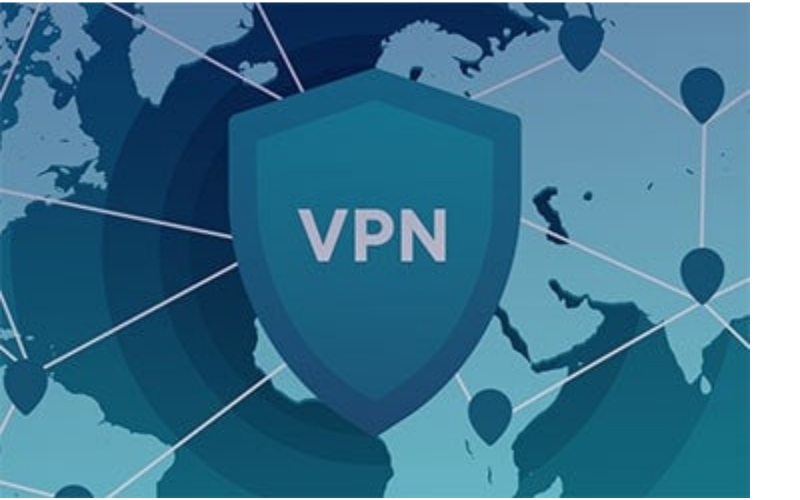Introduction:
In the modern world of digital connectivity, the need for online privacy and security has never been more important. Whether you’re browsing social media, shopping online, or simply checking your email, your data is constantly being transmitted over the internet. This data can be intercepted, potentially exposing sensitive information like passwords, bank account details, or personal conversations.
A Virtual Private Network (VPN) is one of the most effective tools you can use to safeguard your online activities. By encrypting your internet traffic and masking your IP address, a VPN offers a layer of security and privacy that protects you from hackers, cybercriminals, and even surveillance. This article will explore the basics of VPNs—what they are, how they work, and why they are essential for protecting your data online.
What is a VPN?
A Virtual Private Network, or VPN, is a service that creates a secure connection over the internet, often referred to as a “tunnel.” This tunnel encrypts your internet traffic, ensuring that anyone who might try to intercept it cannot read or use the data.
At its core, a VPN allows users to connect to the internet through a remote server, making it appear as if their internet activity is originating from the server’s location instead of their actual physical location. This is particularly useful for those who want to protect their privacy and avoid having their browsing activities tracked.
A VPN works by encrypting the data between your device (such as a computer or smartphone) and the VPN server, making it impossible for third parties—such as hackers or Internet Service Providers (ISPs)—to monitor or control your online activities.
How Do VPNs Work?
When you connect to the internet without a VPN, your device communicates directly with your ISP, which can see all of your online activity. This means that your ISP can monitor which websites you visit, what content you view, and even track your personal data. However, when you use a VPN, your internet traffic is redirected through an encrypted tunnel to a remote server managed by the VPN provider.
There are several key components involved in how a VPN works:
-
Encryption: VPNs use encryption protocols to secure your internet traffic, making it unreadable to anyone trying to intercept it. Common encryption protocols include OpenVPN, WireGuard, and IKEv2/IPsec.
-
VPN Server: When you connect to a VPN, your device communicates with a server owned by the VPN provider. This server acts as an intermediary between you and the internet, masking your IP address and preventing your ISP from seeing your browsing history.
-
IP Address Masking: The VPN server assigns you a new IP address, making it appear as if your connection is coming from the server’s location rather than your own. This feature is particularly useful for bypassing geo-restrictions and accessing content that might be blocked in your region.
Why Use a VPN?
-
Privacy and Anonymity: One of the most important reasons people use VPNs is to protect their privacy. By encrypting your traffic and masking your IP address, a VPN makes it difficult for anyone—whether it’s hackers, advertisers, or even governments—to monitor your online activities. This is particularly crucial for individuals who value their privacy and want to avoid invasive surveillance.
-
Bypassing Geo-Restrictions: Many online services restrict access to their content based on geographic location. For example, streaming platforms like Netflix, Hulu, and BBC iPlayer offer different content libraries to users depending on their country. With a VPN, you can virtually “move” to a different country by connecting to a server in that location. This allows you to access content that might not be available in your region.
-
Enhanced Security on Public Wi-Fi: Public Wi-Fi networks—such as those in airports, coffee shops, and hotels—are notoriously insecure. Hackers can easily intercept your data on these networks, potentially accessing your personal information. Using a VPN while connected to public Wi-Fi ensures that your data is encrypted and secure, preventing any potential eavesdropping.
-
Avoiding Censorship: In some countries, the government restricts access to certain websites or services. For example, many social media platforms, news websites, and messaging apps are blocked in regions like China or the Middle East. A VPN allows you to bypass these restrictions by connecting to a server in a country where these services are not blocked.
-
Safe Online Banking and Shopping: When making online purchases or managing your bank accounts, it’s important to ensure that your sensitive financial information is protected. VPNs add an extra layer of security, reducing the risk of identity theft or fraud by encrypting your communication with banking websites or e-commerce platforms.
Types of VPNs
There are different types of VPNs designed to meet various needs. Understanding these types can help you choose the best VPN for your situation.
-
Remote-Access VPNs: These are the most common type of VPN, often used by individuals and businesses alike. A remote-access VPN allows users to connect to a private network (such as a company’s internal network) from any remote location. This is particularly useful for employees working from home or traveling abroad who need to securely access company files and resources.
-
Site-to-Site VPNs: A site-to-site VPN is typically used by businesses with multiple offices or branches. It allows two or more networks to securely connect over the internet, creating a private network across various physical locations. This type of VPN is often used for connecting branch offices to a central office network.
-
Mobile VPNs: Mobile VPNs are specifically designed for users on the go. They ensure that your VPN connection remains stable, even when you switch between Wi-Fi networks or move between different locations. This type of VPN is essential for individuals who rely on mobile devices for work or personal use.
VPN Protocols
VPNs use various encryption protocols to ensure secure communication between your device and the VPN server. Different protocols offer different levels of security and performance.
-
OpenVPN: OpenVPN is one of the most popular and secure VPN protocols. It is open-source, meaning it is constantly reviewed by the security community. It is highly configurable and supports strong encryption, making it ideal for privacy-conscious users.
-
WireGuard: WireGuard is a newer VPN protocol that is known for being faster and more efficient than older protocols like OpenVPN. It is still considered secure and is becoming increasingly popular among VPN providers.
-
IKEv2/IPsec: IKEv2 (Internet Key Exchange version 2) paired with IPsec (Internet Protocol Security) is a fast and secure VPN protocol. It is commonly used for mobile devices because it provides reliable connections, even when switching networks.
Choosing the Right VPN
When selecting a VPN, there are several factors to consider:
-
Privacy and Security: Ensure that the VPN provider has a no-logs policy and offers strong encryption protocols.
-
Speed and Performance: VPNs can sometimes slow down your internet connection. Look for a provider that offers fast servers and minimal latency.
-
Device Compatibility: Check whether the VPN is compatible with your devices, such as smartphones, laptops, and routers.
-
Server Locations: More server locations provide greater flexibility in bypassing geo-restrictions.
-
Customer Support: Choose a VPN with reliable customer support in case you encounter any issues.
Conclusion:
In today’s digital world, protecting your online privacy and security is essential. VPNs offer an effective solution to safeguarding your data from hackers, maintaining your anonymity, and bypassing geographic restrictions. Whether you’re a remote worker, a traveler, or someone who values privacy, a VPN is a must-have tool for online safety. By understanding the basics of how VPNs work, why you need them, and how to choose the right one, you can enjoy a more secure and private online experience.

